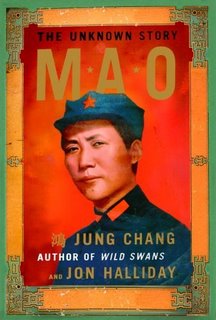Front page
XML Feed
Read Our
"Love your site" -- Dan Savage
"A great read" -- Fareed Zakaria
"I enjoy OxBlog very much" -- Michael Barone
OxBlog: Trying to live up to the hype since April 23, 2002!
David Adesnik, a research analyst in Washington DC, received his doctorate in international relations from Oxford.
Email David
![]()
The Media:
NYT
WaPo
OpinionJournal
TNR
Weekly Standard
NRO
Slate
Commentary
BBC
Other Blogs We Like:
George Washington:
InstaPundit
James Wilson:
Brett Marston
Alexis de Tocqueville:
American Scene
Crescat Sententia
Crooked Timber
Galley Slaves
Eve Tushnet
Christopher Hitchens
Theodore Roosevelt:
Amygdala
Belgravia Dispatch
Phil Carter
Joyful Christian
Joe Gandelman
Adrianne Truett
Winds of Change
Pejman Yousefzadeh
Global Guerrillas
Calvin Coolidge:
ScrappleFace
Winston Churchill:
Sasha Castel
Andrew Sullivan
Tim Blair
Franklin Roosevelt:
Kevin Drum
Josh Marshall
Matt Yglesias
Democracy Arsenal
Dan Nexon
David Ben Gurion:
GedankenPundit
Kesher Talk
Friedrich Hayek:
Jane Galt
Virginia Postrel
Natalie Solent
VodkaPundit
Matt Welch
Ronald Reagan:
Power Line
RealClearPolitics
Worldwide Standard
RedState
Liz Mair
Daniel Patrick Moynihan:
Daniel Drezner
How Appealing
# Posted 12:43 AM by Ariel David Adesnik ![]()
 IS IT POSSIBLE TO BE TOO CRITICAL OF HITLER? The answer to that question seems like an obvious 'no'. But what about Mao? Leave aside the body counts, which don't tell you much about who was more evil. Both Mao and Hitler were simply so evil that it is hard to imagine what excess criticism would look like.
IS IT POSSIBLE TO BE TOO CRITICAL OF HITLER? The answer to that question seems like an obvious 'no'. But what about Mao? Leave aside the body counts, which don't tell you much about who was more evil. Both Mao and Hitler were simply so evil that it is hard to imagine what excess criticism would look like.And yet, having made my way through the first half of the new Mao biography by Jung Chang and Jon Halliday, I'd have to say that their criticism of Mao is excessive. This conclusion won't come as a surprise if you've been reading any of the reviews of their book, but even if you have read the reviews, you may not find such reservations about the book to be in the least bit credible.
If you read the reviews, you may sense that the reviewers simply can't let go of some of the good feelings about Mao that inhabited the American left throughout the Chairman's lifetime. For example, Nicholas Kristof writes in the NYT that,
Based on a decade of meticulous interviews and archival research, this magnificent biography methodically demolishes every pillar of Mao's claim to sympathy or legitimacy.And yet Kristof still hedges his negative stance toward Mao by ending his review with the almost indefensible argument that:
Mao's ruthlessnes was catastrophic at the time...[but] Mao also helped lay the groundwork for the rebirth and rise of China after five centuries of slumber.Which is sort of like saying that Hitler laid the groundwork for the rebirth and rise of Germany after World War II. The point is, the same thing could've been accomplished without piling up tens of millions of corpses.
That said, how could I, who am a stranger to any sort of nostalgia for the extreme left, still say that the Chang & Halliday bio goes too far? Here's how: the issue isn't so much that their sum total judgment of Mao is unfair, but rather that they distort or neglect important aspects of both Mao's life and modern Chinese history by describing everything that happens as the result of Mao's evil intentions (and the stupidiy of others who didn't perceive them).
For example, Kristof hits on this point quite well when he observes that
[Mao] is presented as such a bumbling psychopath that it's hard to comprehend how he bested all his rivals to lead China.Although you'd think that Chang & Halliday would present most other Communists as being almost as evil as Mao, they actually present them as surprisingly naive or even well-intentioned. Even those such as Chang Kuo-t'ao, whom they describe as savvy and ruthless, ultimately wind up making incredibly stupid and suicidal mistakes during their confrontations with Mao.
Lucian Pye, a highly-regarded scholar of Chinese politics, notes in his brief (and terribly unfair) review in Foreign Affairs that Chang & Halliday
Make no effort to explain how so many people, both Chinese and foreigners, fell under the spell of [Mao] and his myth.Actually, the authors do provide an answer, but a very simplistic one: the Big Lie. Once Mao was in power, that approach might have worked, as it did for other dictators.
But one problem is that Chang & Halliday never explain why tens of millions of Chinese peasants supported the Communists -- and millions fought for them -- during the Chinese Civil War. Instead, they only tell us how Mao brutalized countless peasants during those years. True, but something here doesn't add up.
What I'm trying to suggest here is not that Mao was any less evil than Chang & Halliday insist, but rather that their overwhelming emphasis on his evil has blinded them to his talents. By itself, talent has no moral valence. In no way does being talented redeem Mao Zedong. But it is absolutely critical to explaining his success. (3) opinions -- Add your opinion
I don't see how anyone on the Left could make that argument after years of making the following argument:
Bush is such a bumbling psychopath that it's hard to comprehend how he bested all his rivals to lead the US.

